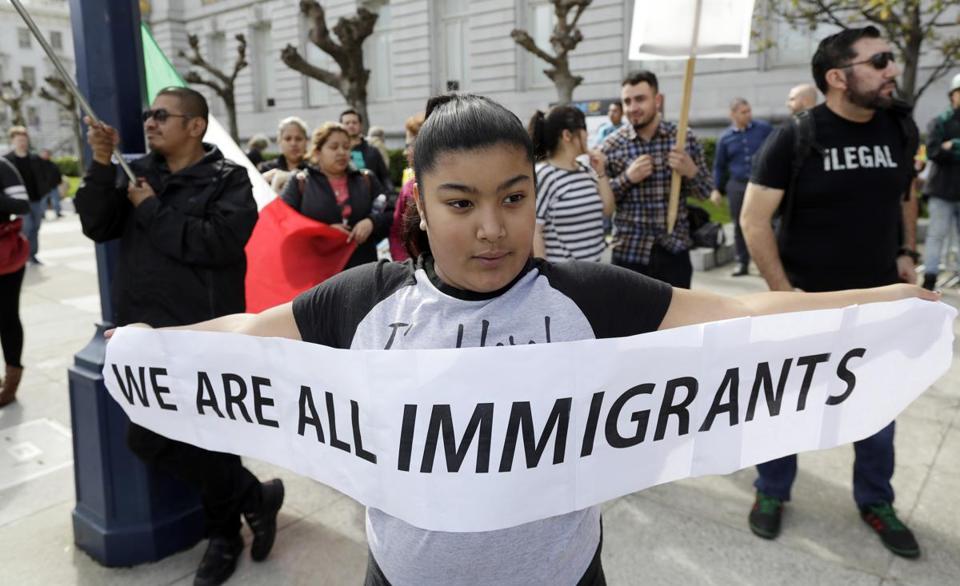January 20, 2021 – Over the past four years, immigrant communities have felt threatened due to the actions and rhetoric of the federal government, instilling fear and confusion for immigrants seeking health care services. However, as the new presidential administration takes power, there is hope that key immigration policies will be reversed so that immigrants can feel safe and empowered to access their critical health care benefits. In fact, the end of 2020 has already brought good news for several immigration issues, including TPS, DACA, and the “public charge” rule. Massachusetts is home to 1,095,953 immigrants, which means that one out of six residents is foreign-born. 12,000 of them have TPS (mostly from El Salvador and Haiti) and 5,480 have DACA (as of March 2020).
The first piece of good news came in early December regarding the future of Temporary Protected Status (TPS), a life-saving humanitarian protection program. TPS currently grants 330,000 immigrants temporary citizenship and work authorization in the U.S., protecting them against forced deportation back to their homelands which face extreme hardships, like armed conflict and natural disasters. In the last four years, there have been several attempts to end TPS protection for six out of the 10 designated countries, and benefits were set to expire earlier this month. However, the Department of Homeland Security extended TPS benefits, protecting beneficiaries from El Salvador, Haiti, Honduras, Nepal, Nicaragua and Sudan until October 21, 2021 and beneficiaries from South Sudan until May 2, 2022. Despite this action, federal courts are still engaged in ongoing litigation over the termination of TPS, so further action is still needed to ensure additional immigrant protections.
For the Deferred Action for Childhood Arrivals (DACA) program, young adults who came to the U.S. as children now have the opportunity to renew and apply for DACA. DACA provides 700,000 young people protection from deportation and permission to work. Although the program ended and hung in limbo in 2017, the Supreme Court later overturned the executive branch’s DACA termination in June 2020, citing that the program was discontinued illegally. Consequently, last month a federal judge ordered DACA to be fully restored and to start accepting new applications. However, similar to the future of TPS, a separate lawsuit, led by Texas and six other states, still leaves the future of DACA in question.
In addition, at the beginning of December, the federal appeals court blocked and upheld the injunction against the previous administration’s new public charge rule. The public charge test looks at whether the person, who is applying for a green card or visa, is likely to use certain government services in the future. However, it is important to understand that public charge does not apply to all immigrants, and immigrants can seek COVID-19 testing, prevention, and treatment without fearing immigration consequences due to public charge in the future. For more information and resources, the Protecting Immigrant Families (PIF) Campaign launched the national Keep Your Benefits website to help immigrants and those who assist them to understand: (1) which immigrants face a public charge test and (2) which benefits are included in the public charge test. The website includes a simple screening tool and guide, and it also has an explanation of the public charge rule, a page dedicated to helping individuals find immigration assistance and legal aid resources in their area, and additional resources including an FAQ.
Along with this good news for TPS, DACA, and the public charge rule, the new administration brings hope for permanent solutions that will allow all people in the U.S, regardless of where they were born, to live without fear and to access vital health care services. Within the first day of taking office, the new administration initiated a series of executive orders to undo many immigration policies enacted within the last four year, which include reaffirming DACA protections and suspending the travel ban. The new administration also unveiled an ambitious immigration bill, known as the US Citizenship Act of 2021, which would pave a path to citizenship for undocumented immigrants, provide foreign aid to Central America, and enhance border security through screening technology. Despite these early executive actions, there is still much work to be done to restore trust and improve the immigration system, and HCFA will work closely with communities and advocates to promote policies that protect and expand access to health care for all.
Tiffany Alunan, Health Care For All Immigrant Health Intern

